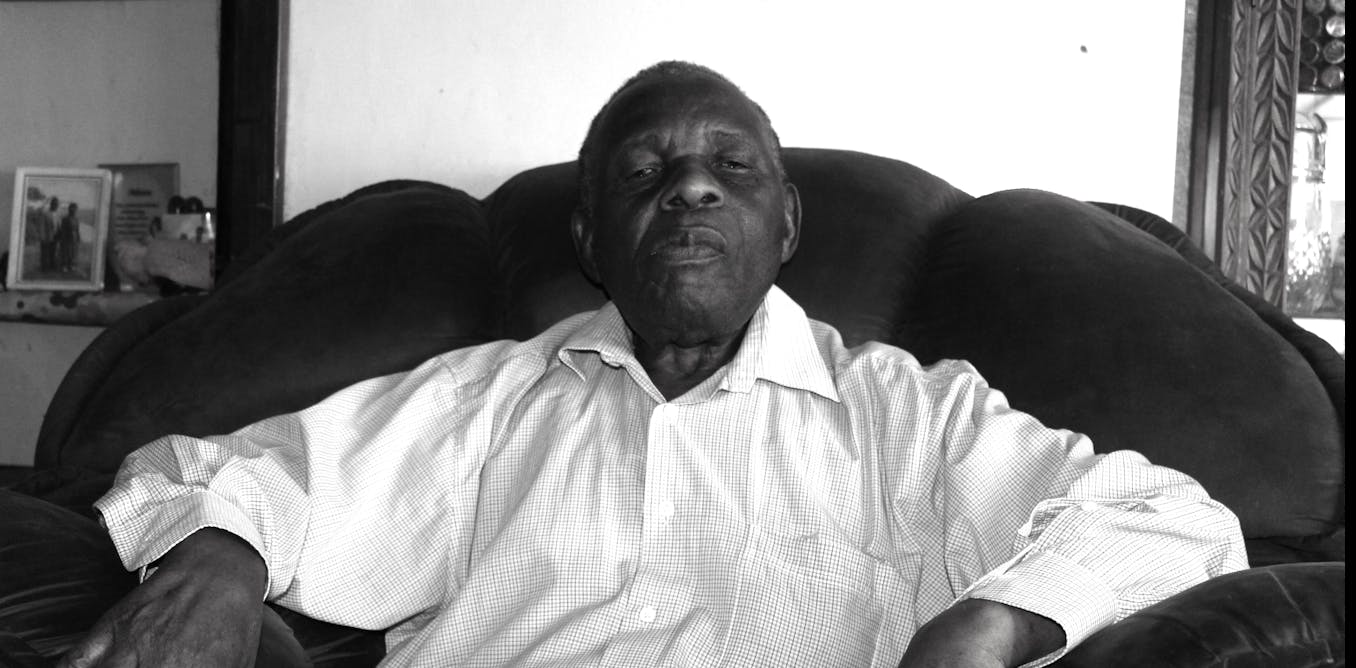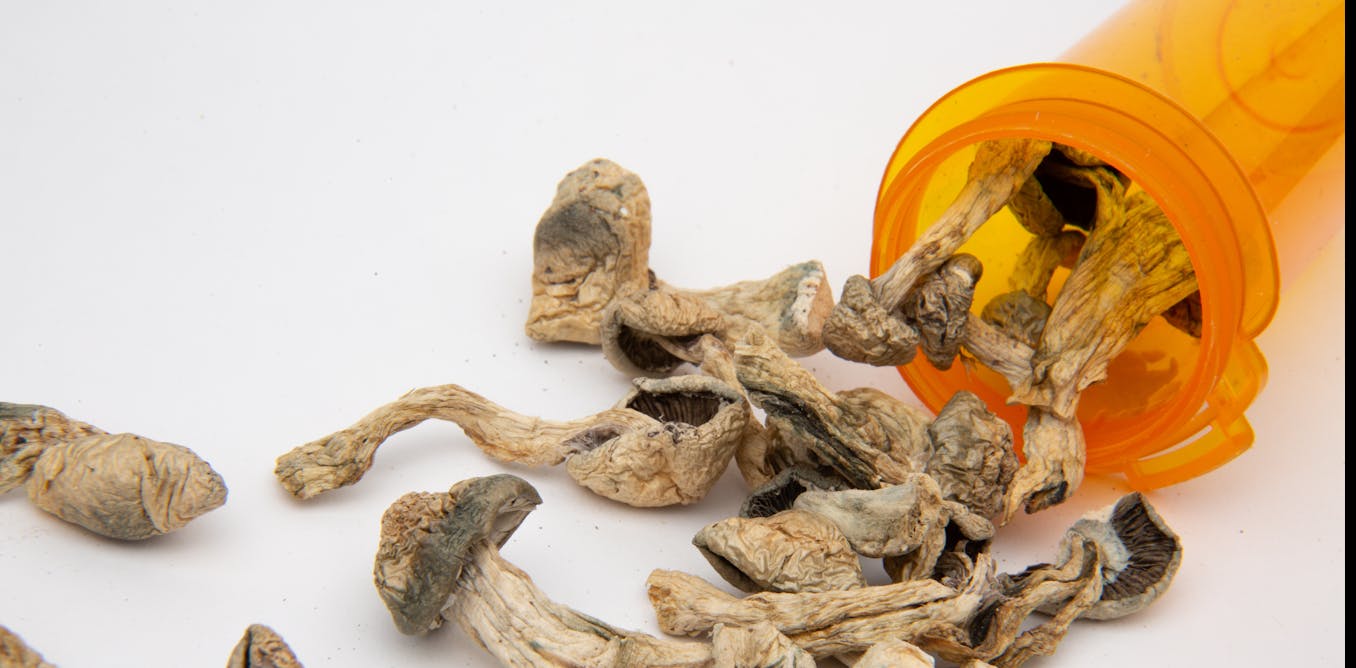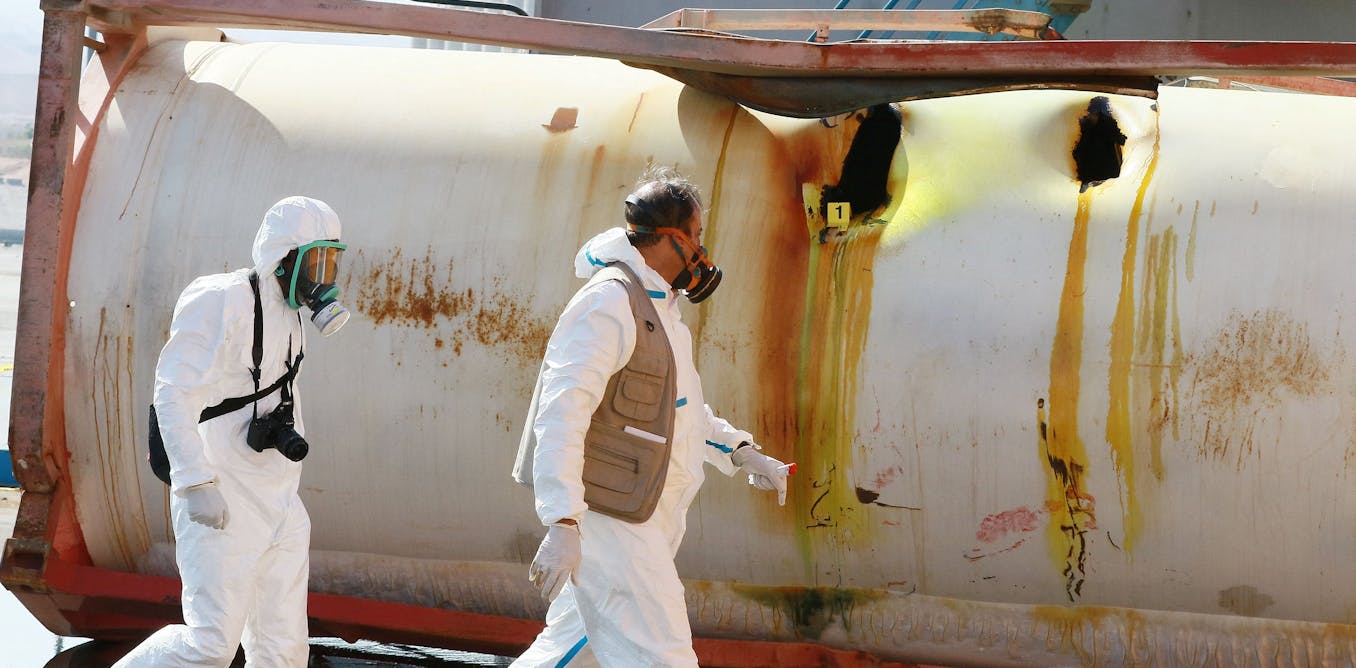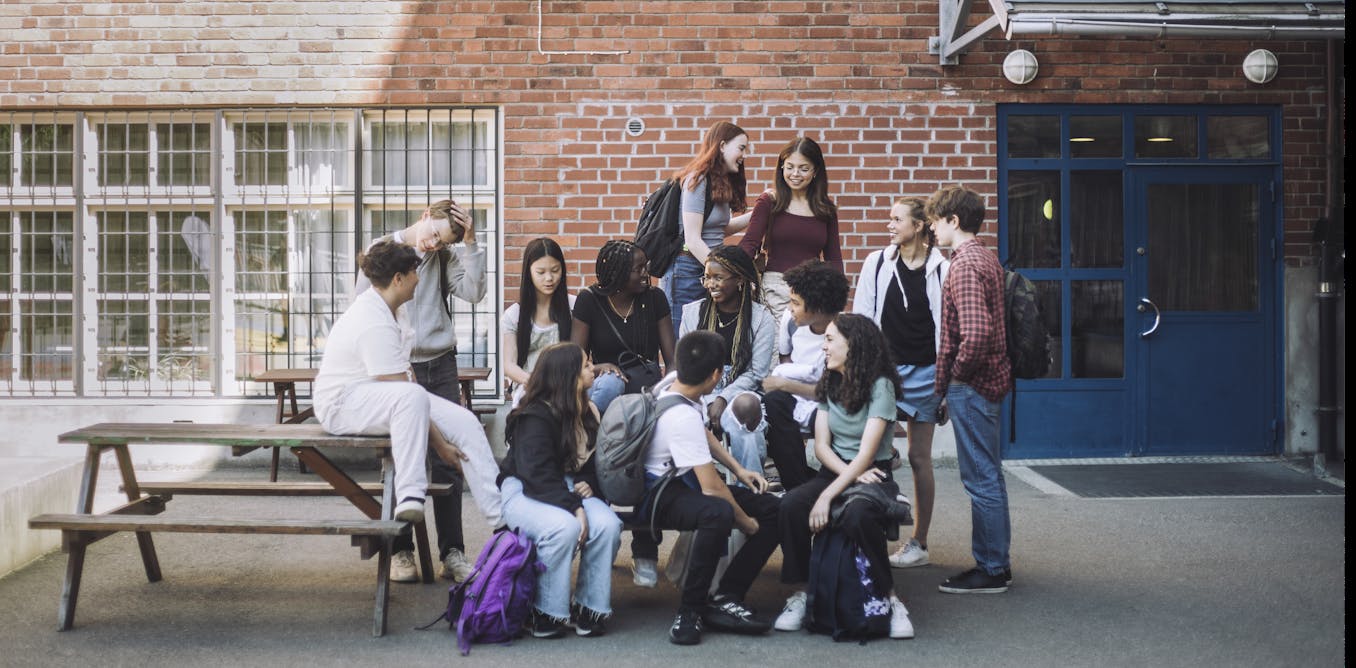   
CEO Picks - The best that international journalism has to offer!
 S41 S41Let's turn down the dial on conflict and focus on solutions   Is Australia’s political system doing a good job of serving its citizens? If not, how can we help it work better?These questions have become even more pressing in recent months. The war in Gaza has spilled over to Australia, bringing new animosity and a threat to our social cohesion. The defeat of the Voice referendum has shaken confidence in the capacity of our political system to meet the needs of Indigenous citizens for better lives and political recognition. Progress on climate change seems unacceptably slow. Meanwhile, fuelled by social media, a steady stream of populism is rushing our way.
Continued here
|
 S1 S1What Today's Rainmakers Do Differently   As “doer-sellers,” professional services partners are responsible for not just delivering services but also the entire business-development process. As “rainmakers,” they must build awareness of their expertise in the market to generate demand, identify and close new client business, deliver the work to the client, and then renew and expand the relationship over time.
Continued here
|
 S2 S2Private Equity Needs a New Talent Strategy   Historically, the efforts of private equity firms to address leadership challenges have been limited primarily to replacing portfolio-company CEOs. Now, in an era of higher interest rates and more competition for limited acquisition targets, these firms are realizing that they need to make more-systematic investments in leadership development. The author offers a variety of prescriptions for PE firms, portfolio companies, and dealmakers, including hiring and empowering “chief human capital officers” to create a firm-level talent strategy, developing a leadership playbook, tasking portfolio companies with creating a leadership agenda, and rigorously assessing organizational effectiveness and talent during due diligence for company acquisitions.
Continued here
|
 S3 S3Storytelling That Drives Bold Change   When tackling urgent organizational problems, leaders usually work hard to identify underlying causes, tap a wide range of knowledge, and experiment with solutions. But once they’ve mapped out a plan, there’s one more crucial step they must take: crafting a story so compelling that it will harness their organizations’ energy and direct it toward change. Drawing on decades of experience helping senior executives lead large-scale transformations, Harvard professor Frei and leadership coach Morriss present an effective way to approach that challenge. They outline four key steps: (1) Understand your story so well that you can describe it in simple terms, (2) honor the past, (3) articulate a persuasive mandate for change, and (4) lay out a rigorous and optimistic path forward.
Continued here
|
 S4 S4It's Time to Define Your Company's Principles   Companies need to develop strong guiding principles that go beyond generic mission statements and values, the authors argue. Well-articulated principles can provide direction for difficult decisions, especially in times of disruption. They should offer behavioral guardrails and be distinctive to the company, open to debate, transferable across the organization, and integral to its mission. Some strong principles include “Focus on the user and all else will follow” (Google), “Privacy is a fundamental human right” (Apple), and “We won’t release a product until we would use it ourselves” (Tableau Software). The authors recommend that leaders begin by identifying what makes the company unique and involving employees at all levels. When communicating decisions, they should reference principles to demonstrate their relevance. Over time, principles can shape company culture and empower employees to make decisions that align with corporate strategy. In this era of complexity and uncertainty, well-defined principles can provide much-needed clarity and direction.
Continued here
|
 S5 S5 Building the Neurodiversity Talent Pipeline for the Future of Work   Our special report on innovation systems will help leaders guide teams that rely on virtual collaboration, explores the potential of new developments, and provides insights on how to manage customer-led innovation.Our special report on innovation systems will help leaders guide teams that rely on virtual collaboration, explores the potential of new developments, and provides insights on how to manage customer-led innovation.During recent economic policy updates, Jerome Powell, chair of the U.S. Federal Reserve, announced that the American labor market is suffering from a structural labor shortage. Its origins are varied — demographic variables such as an aging population and early retirements, the tragic loss or persistent absence of many workers due to the COVID-19 pandemic, and a historic drop in immigration, among others — but the numbers are now too large to ignore. At the end of last year, there were approximately two job vacancies for every available worker, expanding the labor gap to around 10 million workers. Political economist Nicholas Eberstadt framed it this way: “Yes, the United States has a Depression-scale work problem.”
Continued here
|
 S6 S6How EcoVadis is holding global corporations accountable   Sustainability and business decisions are no longer separate concerns. Amid increasing government legislation on climate disclosure – and pressure from shareholders and consumers – companies must take decisions with sustainability in mind. They need to know how they're doing – and where they must go next to reach their goals.EcoVadis provides that insight into business's environmental, labour and human rights, ethics and sustainable procurement criteria practices, granting them ratings. Their platform now has more than 125,000 companies across the globe that are either being rated or rating themselves, including Johnson & Johnson, L'Oréal, Unilever and Salesforce.
Continued here
|
 S7 S7The Crown to Doctor Who: 12 of the best TV shows to watch this November   This adaptation of Anthony Doerr's 2014 bestselling novel about Marie-Laure, a young blind woman working for the French Resistance, and Werner, a German soldier drawn to her radio broadcasts, received tepid reactions when it premiered at the Toronto Film Festival. Indiewire called it "schmaltzy" as well as "speedy, tear-jerking and handsome enough". But that might not bother the book's many fans, who can now appreciate the appealing cast as well as the dramatic story. Newcomer Aria Mia Loberti, who has impaired vision herself, received high praise as Marie-Laure. The Hollywood Reporter called her "radiant". Mark Ruffalo plays her devoted father, and Hugh Laurie the uncle they stay with during the Nazi occupation. Written by Steven Knight (Peaky Blinders) and directed by Shawn Levy (best known for the Night at the Museum films), the four-part series comes with World War Two intrigue, family emotion and a built-in audience. Executive producer Taylor Sheridan adds another Western saga to his empire with this anthology series, each season featuring a different real-life hero. The initial season has familiar genre tropes, all those cowboy hats and horses, but a bracingly different story. David Oyelowo (Selma) plays the US Deputy Marshal Bass Reeves, famous for having arrested more than 3,000 men. An enslaved man who was forced to fight for the Confederacy in the US Civil War, he escaped, and became one of the first black US Marshals. It's a story Oyelowo, also a producer of the show, has wanted to make since 2015, before Sheridan's company was involved. As he told Vanity Fair, Reeves lived "at a time that in many ways defines who and what America is", a history viewed here "through the personal eyes of one black man and his family". The supporting cast includes Donald Sutherland, Garrett Hedlund and Yellowstone regular Moses Brings Plenty.
Continued here
|
 S8 S8Festive, fabulous - and sustainable: A holiday gift guide   Gift-giving these days can be a fraught experience. Questions compete for attention: where was it made? What's it made of? What about the producer's working conditions?Clare Brass, a specialist in the circular economy, is pretty blunt about tangible gifts. She's always believed that there is no such thing as a sustainable product. "Whatever you buy has an environmental – and often social – impact. So even if you choose the 'most environmentally-friendly' gift, you're not really helping the planet."
Continued here
|
 S9 S9The Legend of Zelda film: past adaptations have gotten Link's character wrong   The Legend of Zelda (first produced in 1986) is one of the most beloved videogames around the world, so when Nintendo announced the development of a live-action movie a couple of weeks ago, it inspired a lot of speculation (and fear) about how they might pull off a film. Despite being haunted by the infamous adaptation made 30 years ago, the recent The Super Mario Bros. Movie was a global family hit. However, for some fans – myself included – it failed to deliver a compelling story about its central characters, which are some of the most iconic in videogame history. If Nintendo’s aim is to put smiles on every fan’s face, then adapting The Legend of Zelda will be a real challenge.
Continued here
|
 S10 S10
 S11 S11 S12 S12 S13 S13Supreme Court to consider giving First Amendment protections to social media posts   The companies that own the platforms can – and do – remove, promote or limit the distribution of any posts according to corporate policies. But all that might soon change.The Supreme Court has agreed to hear five cases during this current term, which ends in June 2024, that collectively give the court the opportunity to reexamine the nature of content moderation – the rules governing discussions on social media platforms such as Facebook and X, formerly known as Twitter – and the constitutional limitations on the government to affect speech on the platforms.
Continued here
|
 S14 S14The challenges of being a religious scientist   Research presented in this article was supported by a grant from the National Science Foundation (Award #1749130, Christopher P. Scheitle, Principal Investigator).Given popular portrayals, you would be forgiven for assuming that the type of person who is a scientist is not the type of person who would be religious. Consider the popular television show “The Big Bang Theory,” which is about friends who nearly all have advanced degrees in physics, biology or neuroscience. The main character, Sheldon – a physicist who is often dismissive of religion – is juxtaposed with his devout Christian mother, who is uninterested in and ignorant about science.
Continued here
|
 S15 S15 S16 S16How climate negotiators turn national self-interest into global collective action   Global heat has seared to new extremes in recent months, and devastating climate disasters are providing powerful reminders of the costs of climate change, as governments around the world prepare for the 2023 United Nations climate summit that starts on Nov. 30.While a small window of hope remains for meeting the goals of the 2015 Paris climate agreement, the world’s greenhouse gas emissions continue to rise.
Continued here
|
 S17 S17Booker prize: rediscovering the first female winner, the often-forgotten Bernice Rubens   One of the most captivating and enigmatic novelists of the 20th century, Bernice Rubens remains largely unknown despite her remarkable literary achievements. She was the second recipient of the Booker prize in 1970 for her novel The Elected Member and its first female winner. She remains the only Welsh winner in the history of the prize – a fact that perhaps speaks volumes for the way Welsh writing in the English language is perceived and recognised outside of Wales.
Continued here
|
 S18 S18 S19 S19 S20 S20John Hlatywayo: remembering a great Zimbabwean artist who was woefully neglected by history   John Hlatywayo, who has died at 96, was a great painter, sculptor and mentor. However he is woefully neglected in the art history of Zimbabwe and southern Africa.Belonging to an early generation of Zimbabwean artists, Hlatywayo was overshadowed by international interest in the nation’s mainstreamed stone sculptors. Yet he was one of Zimbabwe’s most versatile artists. He could work with different media and produce intriguing conceptual pieces. But he was mainly drawn to portraying aspects of people’s daily lives.
Continued here
|
 S21 S21'No one would ever speak up again': servicewomen feel military culture stops them from reporting sexual assault   An inquiry into the death of a 19-year-old soldier in the British army found that relentless sexual harassment by her line manager was “almost certain” to have been a causal factor in her death.Royal Artillery Gunner Jaysley-Louise Beck took her own life after receiving more than 4,500 messages and voicemails from her boss over two months. Beck felt unable to report the harassment, as a previous alleged sexual assault she experienced by a different senior colleague had not been handled effectively. She did not want to be labelled a “serial troublemaker”.
Continued here
|
 S22 S22Stem cell therapy shows promise for treating multiple sclerosis - new study   Over 2 million people globally have multiple sclerosis (MS), a disease that affects the nervous system and can lead to problems moving, seeing and thinking.While there are treatments that can help reduce the number and severity of MS attacks, many people with MS eventually develop a more severe form of the disease called secondary progressive MS. Unfortunately, there are few treatments for secondary progressive MS. And there are no drugs approved for the most advanced forms of disease.
Continued here
|
 S23 S23Psilocybin shows promise for treating eating disorders, but more controlled research is needed   Recently, the spotlight is turning to eating disorders (ED), a group of severe and difficult-to-treat conditions. A survey revealed that 70 per cent of people view psychedelic medicine as a promising avenue for EDs, and numerous reports depict positive results. Media platforms abound with compelling personal stories, from online articles to Netflix documentaries, Reddit threads, TikTok videos and YouTube clips. But the critical question remains: does the scientific evidence align with the hype?
Continued here
|
 |
TradeBriefs Publications are read by over 10,00,000 Industry Executives About Us | Advertise Privacy Policy Unsubscribe (one-click) You are receiving this mail because of your subscription with TradeBriefs.
Our mailing address is GF 25/39, West Patel Nagar, New Delhi 110008, India |











































































